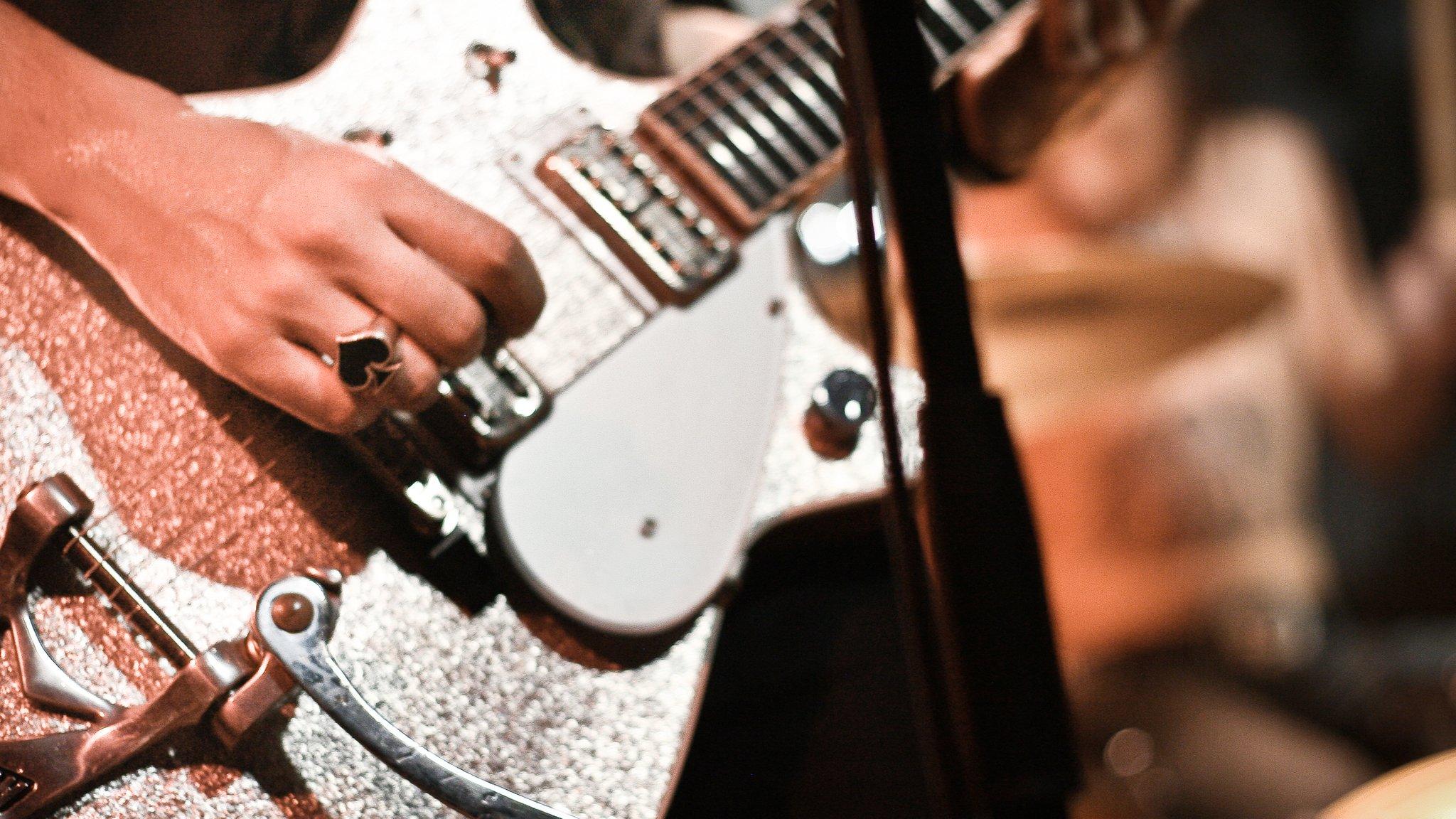Belfast: Former Royal Avenue Tesco transformed into arts space
- Published
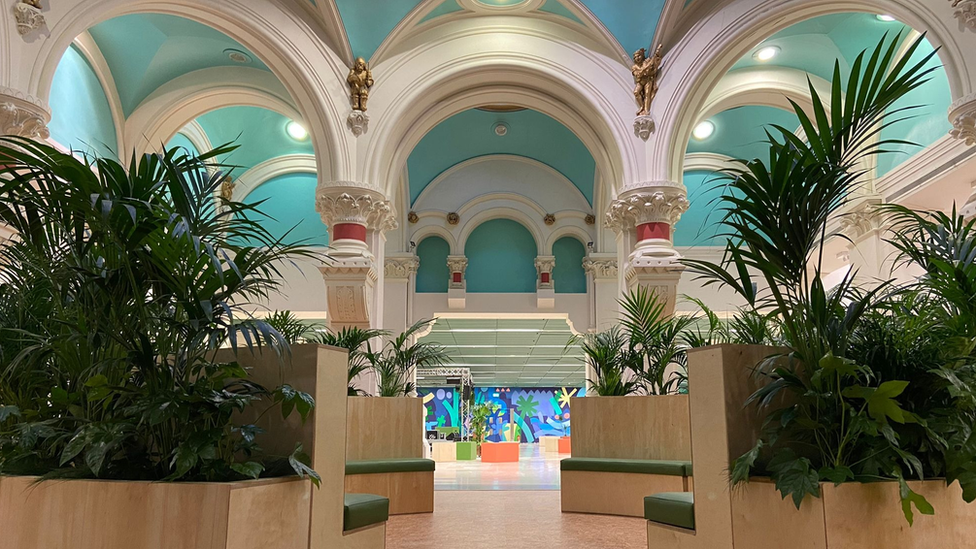
The former Tesco building on Royal Avenue is now a space for music and workshops
Belfast City Council has transformed the former Tesco Metro building on Royal Avenue into a short-term cultural space hosting gigs and exhibitions.
The council bought the listed building in October.
Over the next few weeks, several events will take place, including pop-up markets and a children's workshop, with the first held last Thursday.
Tourism NI has funded the temporary use of the building until March 2022, while the council develops long-term plans.
Tesco had occupied the building since 1996 but did not renew its lease and has instead opened a smaller Express store nearby.
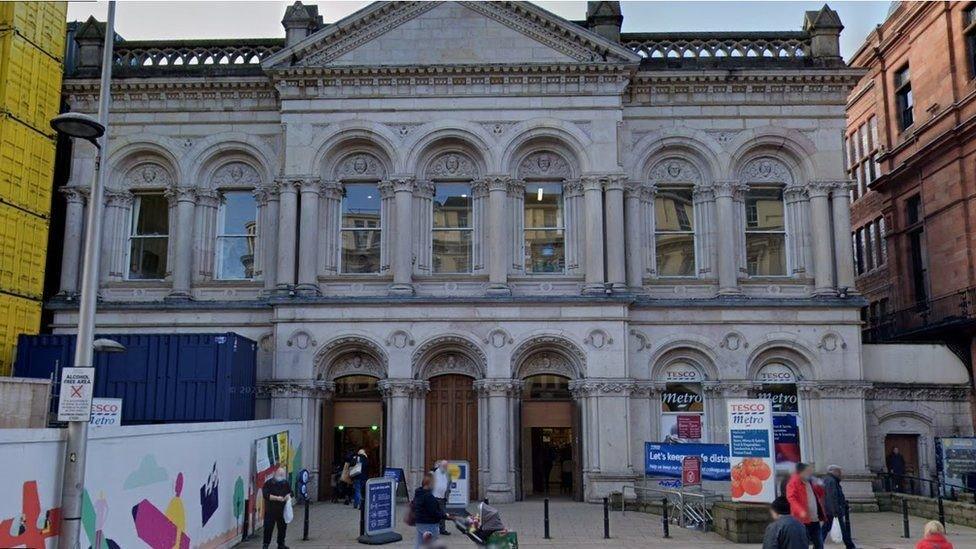
The building is located on Royal Avenue
Sean Lawlor, a founding member of Belfast Ukulele Jam, was delighted to be asked to play the first gig held in the building.
"The acoustics were amazing because of the dome and the arches underneath it and the hard surfaces of the Victorian building bounce the sound around the place," he said.
"The sound goes up into the dome and acts like a big amplifier. There was plenty of room and good ventilation."
Sean said the ukulele group, which has 70 active members, performed outside in parks around Belfast during coronavirus lockdowns but this was a unique experience compared to their weekly jam in a pub.
"It's great, it's a fantastic place for individual performances or group performances and it really lends itself to that kind of event," he said.
He said he would like to see more empty buildings in Belfast turned into arts venues to boost tourism.
"The way the high street has gone and with more empty buildings around the city, I think art collectives and individuals should be in those buildings and used for those reasons," he said.
"It's better to have it full of artists and to see them working than have empty buildings sitting there.
"Belfast is growing as a tourist destination and people like to come along and go around the city centre and experience art."
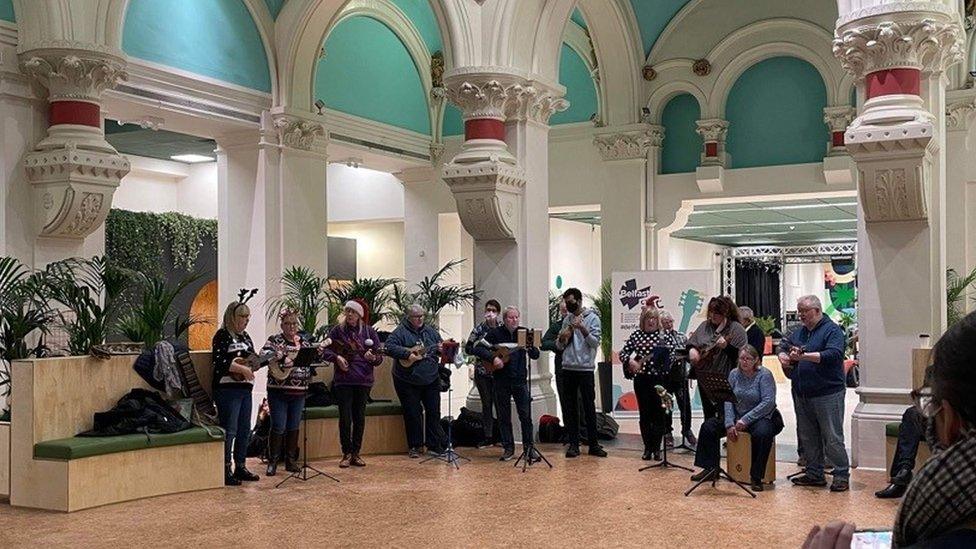
A ukulele jam was the first event to be held in the new cultural space
The lord mayor of Belfast encouraged people to visit the "wonderful, welcoming and playful space".
"This pilot project on cultural space is a fantastic example of city collaboration, bringing together different elements of the cultural and experiential sectors to offer a unique programme of events and activities for people to enjoy," said Kate Nicholl.
"There's so much to see and do in the venue and it's also a really beautiful building to drop in and reflect."
The space is being used as a music venue amongst other things, with a ukulele orchestra and swing music trio performing on Thursday night.
Allow X content?
This article contains content provided by X. We ask for your permission before anything is loaded, as they may be using cookies and other technologies. You may want to read X’s cookie policy, external and privacy policy, external before accepting. To view this content choose ‘accept and continue’.

Ms Nicholl said it was helping to make the council's pledge of transforming vacant places into music venues a reality.
The council said there would be a major focus on music after Belfast's recent Unesco City of Music designation by the United Nations.
The city was awarded the accolade due to its "rich musical heritage" after a bid by Belfast City Council.
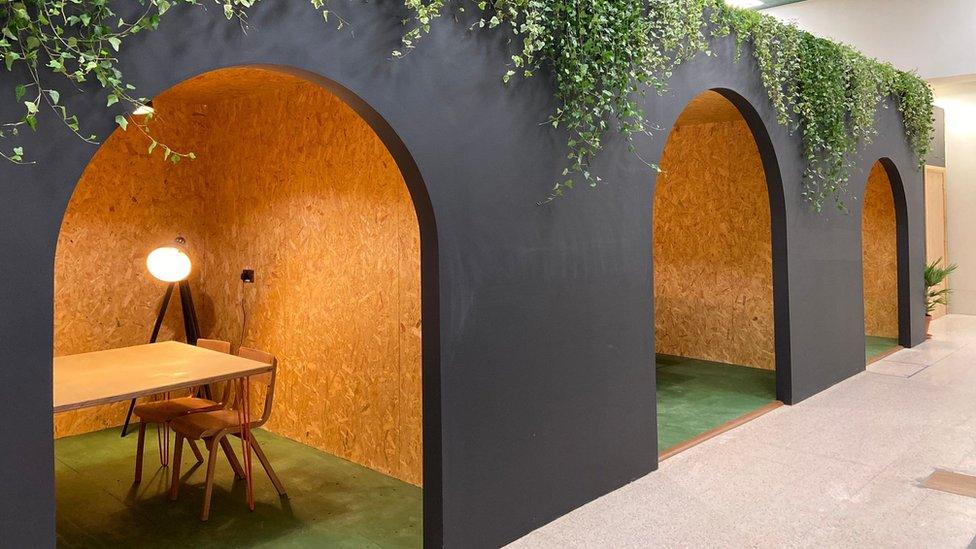
The building was originally a bank, built in 1869
The council said the opening of the venue marked a new approach to tourism and culture in the city.
The B+ listed building, which was originally a bank, was built in 1869 to a design by architect WJ Barre.
Barre's other works in Belfast include the Ulster Hall and the Albert Clock.
The council has recommended application approval to turn the former store into a cultural centre in the long term.
Belfast City Council's planning committee will consider the application on Tuesday.
Related topics
- Published20 October 2021
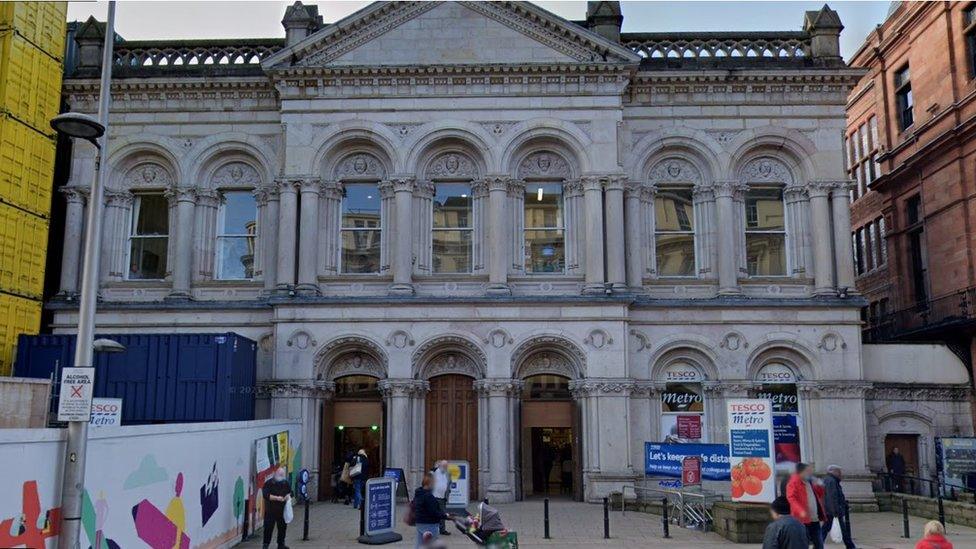
- Published8 November 2021
